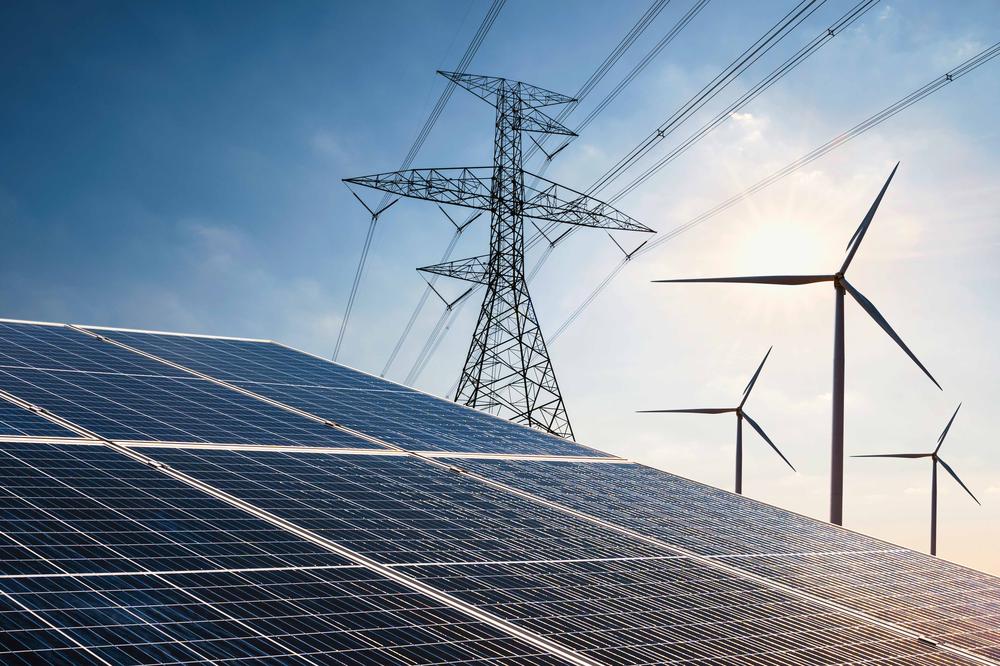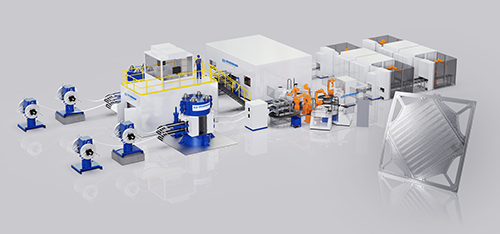
The B2B platform for the best purchasing descision. Identify and compare relevant B2B manufacturers, suppliers and retailers
Close
Filter
Result configuration
Continents
Select continent
Locations
Result types
Company type
Select company type
Industries
Select industry
Company status
Select company status preset
Number of employees
Min.
Max.
Founding year
EH Group Engineering
Renens, Switzerland
A
1-10 Employees
2017
Key takeaway
The company is a leader in hydrogen fuel cell technologies, emphasizing a simplified system architecture that enhances efficiency and reduces costs. Their innovative fuel cell stack design allows for scalable deployments, making it suitable for various applications.
Reference
Product
Fuel Cell Solutions
Altergy Systems
Folsom, United States
B
11-50 Employees
2001
Key takeaway
Altergy Systems is a manufacturer of fuel cells and energy storage solutions in the USA, highlighting its expertise in hydrogen fuel cell technology.
Reference
Core business
Fuel Cell Manufacturers and Energy Storage Solutions Provider in USA
Hyzon
-
- Employees
-
Key takeaway
Hyzon specializes in high-performance hydrogen fuel cell systems that deliver zero-emission power, making them ideal for demanding applications. Their advanced fuel cell technology offers increased power in a compact design, contributing to a sustainable, hydrogen-powered future.
Reference
Product
Fuel Cell Technology | Hyzon - Hyzon
Hyzon builds high-performance hydrogen fuel cells that provide zero-emission power tough enough to transform industry.
Looking for more accurate results?
Find the right companies for free by entering your custom query!
25M+ companies
250M+ products
Free to use
Spectronik
-
1-10 Employees
2011
Key takeaway
Spectronik is dedicated to democratizing hydrogen fuel cells by developing advanced portable fuel cell systems and related accessories, making it easy to convert electric platforms to hydrogen power. Their innovative Protium Series fuel cells are designed for urban electric mobility, offering zero emissions, fast refueling, and long service life.
Reference
Core business
Spectronik | Hydrogen Fuel Cells
HydroFleet Inc.
Charlotte, United States
B
11-50 Employees
2017
Key takeaway
HydroFleet is dedicated to advancing the adoption of fuel cell electric vehicles, offering a comprehensive ecosystem that enhances the efficiency and reliability of fleets. Their commitment to sustainable transportation positions them as leaders in the transition to zero-emissions vehicles.
Reference
Core business
HydroFleet - Power to Make a Difference
We provide the complete ecosystem for fuel cell electric vehicles, making your fleet more dependable and more efficient. Power it all with a complete range of services at one monthly lease rate that includes your choice of FC-EV.
AFC Energy
Waverley, United Kingdom
A
11-50 Employees
2006
Key takeaway
AFC Energy offers a diverse range of hydrogen fuel cells and conversion technologies, focusing on providing affordable and clean off-grid power solutions for sectors like construction and electric vehicle charging. Their mission is to replace fossil fuel generation with hydrogen fuel cells, supporting global net zero commitments.
Reference
Core business
Home - AFC Energy
AFC Energy is the leading provider of Fuel Cell technology for a generation of clean energy, offering best in class performance and lowest operating cost as part of global efforts to decarbonise industry.
FirstElement Fuel
Newport Beach, United States
B
11-50 Employees
2014
Key takeaway
FirstElement Fuel is at the forefront of promoting hydrogen as a clean and sustainable energy source for transportation. Their True Zero initiative is enhancing the adoption of hydrogen fuel cells, which produce only water vapor as a byproduct, offering fast refueling and zero-emissions for various types of vehicles.
Reference
Core business
FirstElement Fuel
FirstElement Fuel provides customers with retail hydrogen fueling for the next generation of vehicles powered by fuel cells
Protean Fuel Cell
Montreal, Canada
A
1-10 Employees
2021
Key takeaway
Protean Fuel Cells is focused on developing and commercializing sustainable energy technologies, including hydrogen fuel cells, which they believe will be the next mainstream fuel. Their commitment to reducing carbon footprints and enhancing ESG programs underscores their dedication to sustainable solutions.
Reference
Core business
Protean Fuel Cells
HYDROGEN Hydrogen is the next mainstream fuel.
Hy-Hybrid Energy
Glasgow, United Kingdom
A
1-10 Employees
2018
Key takeaway
Hy-Hybrid Energy is a specialized service provider in hydrogen and fuel cell technologies, boasting over 22 years of experience. The company offers comprehensive support across the entire supply chain of green hydrogen, including production, storage, and transport, and is actively involved in innovative projects like fuel cell bus development and the establishment of a Green Hydrogen Plant.
Reference
Core business
About Us | Hy-Hybrid Energy
Hy-Hybrid Energy is leading the first of its kind in Hungary, the fuel cell bus development project which also includes battery electric buses & hydrogen powered drones development. In another project, we are working with our partner company to setup a Green Hydrogen Plant overseas.
Plug Power
Town of Colonie, United States
B
1001-5000 Employees
1997
Key takeaway
Plug is at the forefront of the green hydrogen revolution, creating a comprehensive ecosystem that makes hydrogen a viable zero-carbon energy source. They have pioneered the market for hydrogen fuel cell technology and have deployed over 60,000 fuel cell systems, emphasizing their commitment to advancing hydrogen as a key player in the transition to a net-zero economy.
Reference
Core business
Green Hydrogen at Work - Plug Power
We created the first commercially-viable market for hydrogen fuel cell (HFC) technology. As a result, we have deployed more than 60,000 fuel cell systems for e-mobility – a greater number than anyone else in the world. We have also become the largest buyer of liquid hydrogen, having built and operated a hydrogen highway across North
Technologies which have been searched by others and may be interesting for you:
A selection of suitable products and services provided by verified companies according to your search.

Product
Graebener Production Lines
Go to product
A hydrogen fuel cell is an electrochemical device that converts hydrogen and oxygen into electricity, with water and heat as the only byproducts. It operates on the principle of a chemical reaction between hydrogen gas, which serves as the fuel, and oxygen from the air. The process occurs in an anode and cathode structure, where hydrogen molecules are split into protons and electrons at the anode. The electrons flow through an external circuit, generating electricity, while the protons move through a membrane to the cathode, where they combine with oxygen and the electrons to produce water. This technology is highly efficient and environmentally friendly, making it an attractive option for various applications, including transportation, stationary power generation, and backup power systems. Hydrogen fuel cells can significantly reduce greenhouse gas emissions, positioning them as a key component in the transition to cleaner energy sources.
A hydrogen fuel cell generates electricity through an electrochemical reaction between hydrogen and oxygen. Inside the fuel cell, hydrogen gas is supplied to the anode, where it is split into protons and electrons. The protons pass through a membrane to the cathode, while the electrons create an electric current as they travel through an external circuit. At the cathode, oxygen from the air combines with the protons and electrons to produce water and heat as byproducts. This process is efficient and emits only water vapor, making hydrogen fuel cells a clean energy source for various applications, including vehicles and stationary power generation.
1. Environmental Impact
Hydrogen fuel cells produce only water vapor as a byproduct, making them a clean energy source. This significantly reduces greenhouse gas emissions compared to traditional fossil fuels, contributing to a more sustainable future.
2. Efficiency
Hydrogen fuel cells are highly efficient, converting chemical energy directly into electrical energy. This efficiency often surpasses that of conventional combustion engines, allowing for longer operating times and improved energy use.
3. Energy Density
Hydrogen has a high energy density, meaning it can store a large amount of energy in a relatively small volume. This characteristic allows for greater range and performance in vehicles and other applications powered by fuel cells.
4. Versatility
Hydrogen fuel cells can be utilized in various sectors, including transportation, stationary power generation, and portable power applications. Their adaptability makes them suitable for a wide range of energy needs.
5. Rapid Refueling
Refueling a hydrogen fuel cell vehicle takes only a few minutes, similar to conventional gasoline vehicles. This quick refueling time enhances convenience and usability for users compared to battery electric vehicles that require longer charging periods.
Hydrogen fuel cells are utilized in various applications due to their efficiency and low emissions.
1. Transportation
In the automotive sector, hydrogen fuel cells power vehicles, including buses, trucks, and passenger cars. These vehicles offer long ranges and quick refueling times compared to battery electric vehicles.
2. Stationary Power Generation
Hydrogen fuel cells serve as a reliable power source for buildings and facilities, providing backup power and supporting grid stability. They are especially useful in remote locations where traditional power sources may be limited.
3. Portable Power
These fuel cells are also used in portable applications, such as powering electronic devices and providing energy in off-grid situations. This versatility enhances their appeal across various industries.
4. Industrial Applications
In industrial settings, hydrogen fuel cells are employed for material handling equipment, such as forklifts and pallet trucks, providing a clean alternative to traditional diesel engines.
5. Aerospace
The aerospace industry explores hydrogen fuel cells for potential use in aircraft, aiming to reduce carbon emissions and enhance fuel efficiency in future aviation technologies.
Hydrogen Fuel Cell technology faces several challenges that hinder its widespread adoption and implementation. One significant obstacle is the cost of production, as generating hydrogen, especially through green methods, can be expensive. This includes the costs associated with electrolysis and the energy required to produce hydrogen from renewable sources. Another challenge is infrastructure development. The current lack of hydrogen refueling stations limits the practicality of hydrogen fuel cell vehicles, making it difficult for consumers to rely on this technology for daily use. Additionally, storage and transportation of hydrogen present technical difficulties. Hydrogen needs to be stored at high pressures or in liquid forms, which requires robust and costly materials to ensure safety and efficiency.
Some interesting numbers and facts about your company results for Hydrogen Fuel Cell
| Country with most fitting companies | United States |
| Amount of fitting manufacturers | 10000 |
| Amount of suitable service providers | 10000 |
| Average amount of employees | 11-50 |
| Oldest suiting company | 1997 |
| Youngest suiting company | 2021 |
20%
40%
60%
80%
Some interesting questions that has been asked about the results you have just received for Hydrogen Fuel Cell
What are related technologies to Hydrogen Fuel Cell?
Based on our calculations related technologies to Hydrogen Fuel Cell are Water/Ocean Cleaning Technologies, Waste Management, Renewable Energy, Sustainable Fashion, Smart Grid
Who are Start-Ups in the field of Hydrogen Fuel Cell?
Start-Ups who are working in Hydrogen Fuel Cell are Protean Fuel Cell
Which industries are mostly working on Hydrogen Fuel Cell?
The most represented industries which are working in Hydrogen Fuel Cell are Oil, Energy and Gas, Other, Electronics and Electrical engineering, IT, Software and Services, Manufacturing
How does ensun find these Hydrogen Fuel Cell Companies?
ensun uses an advanced search and ranking system capable of sifting through millions of companies and hundreds of millions of products and services to identify suitable matches. This is achieved by leveraging cutting-edge technologies, including Artificial Intelligence.